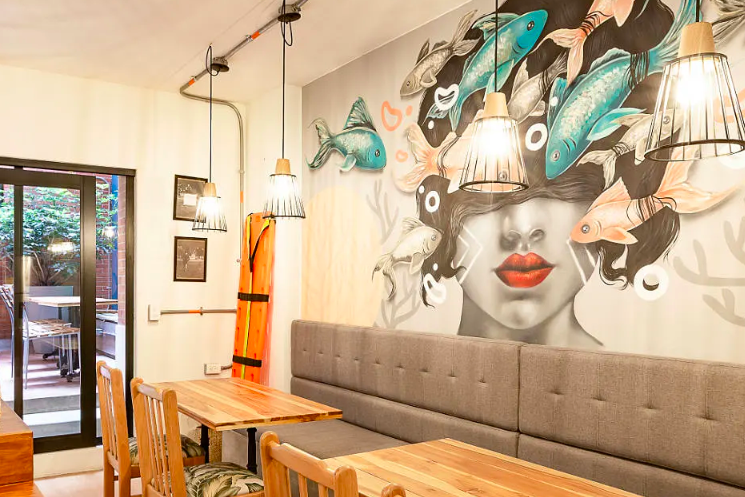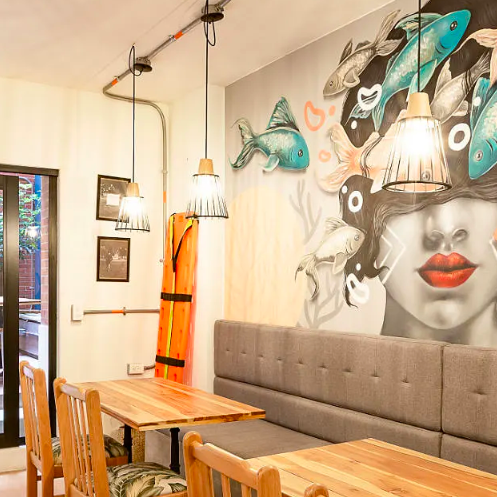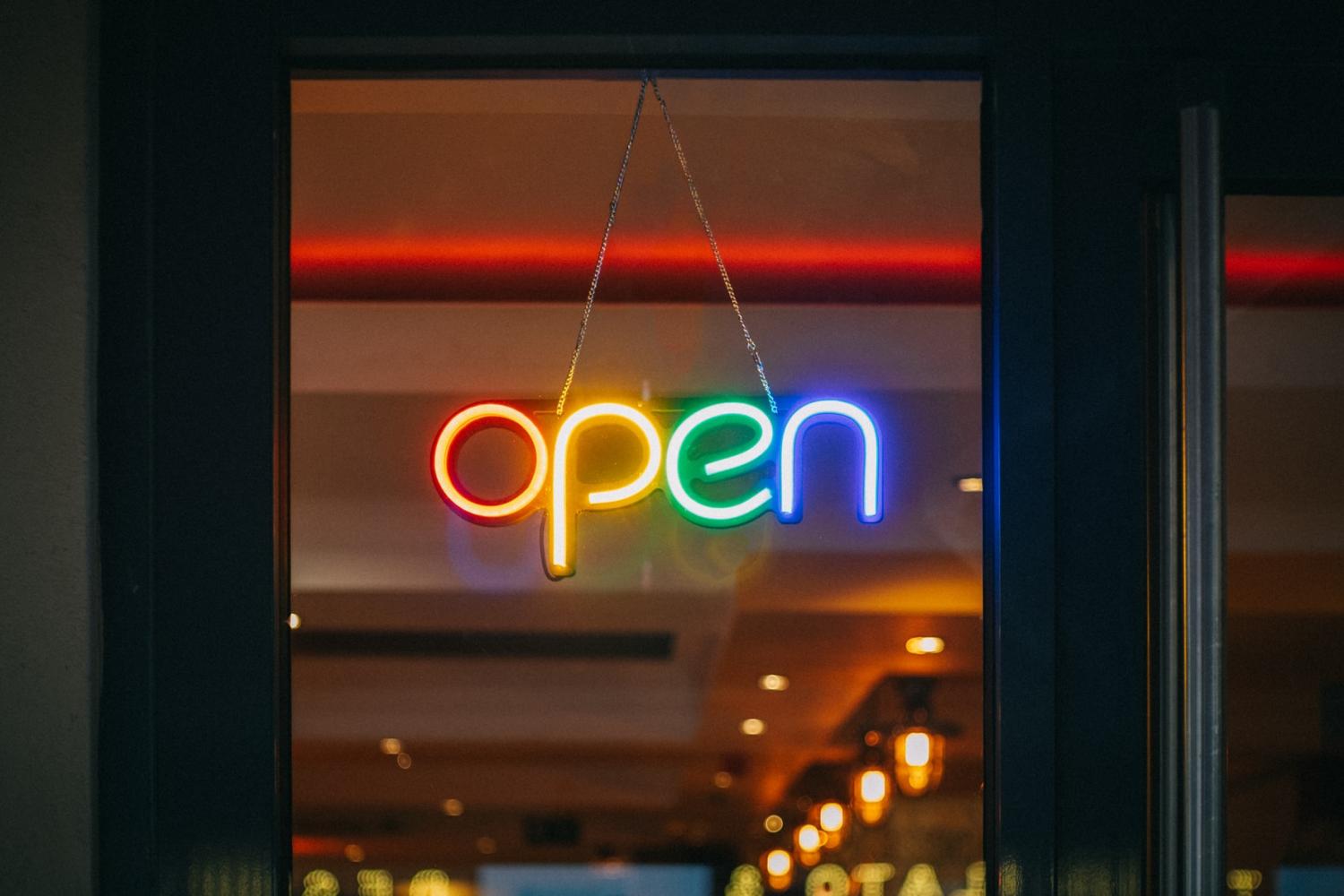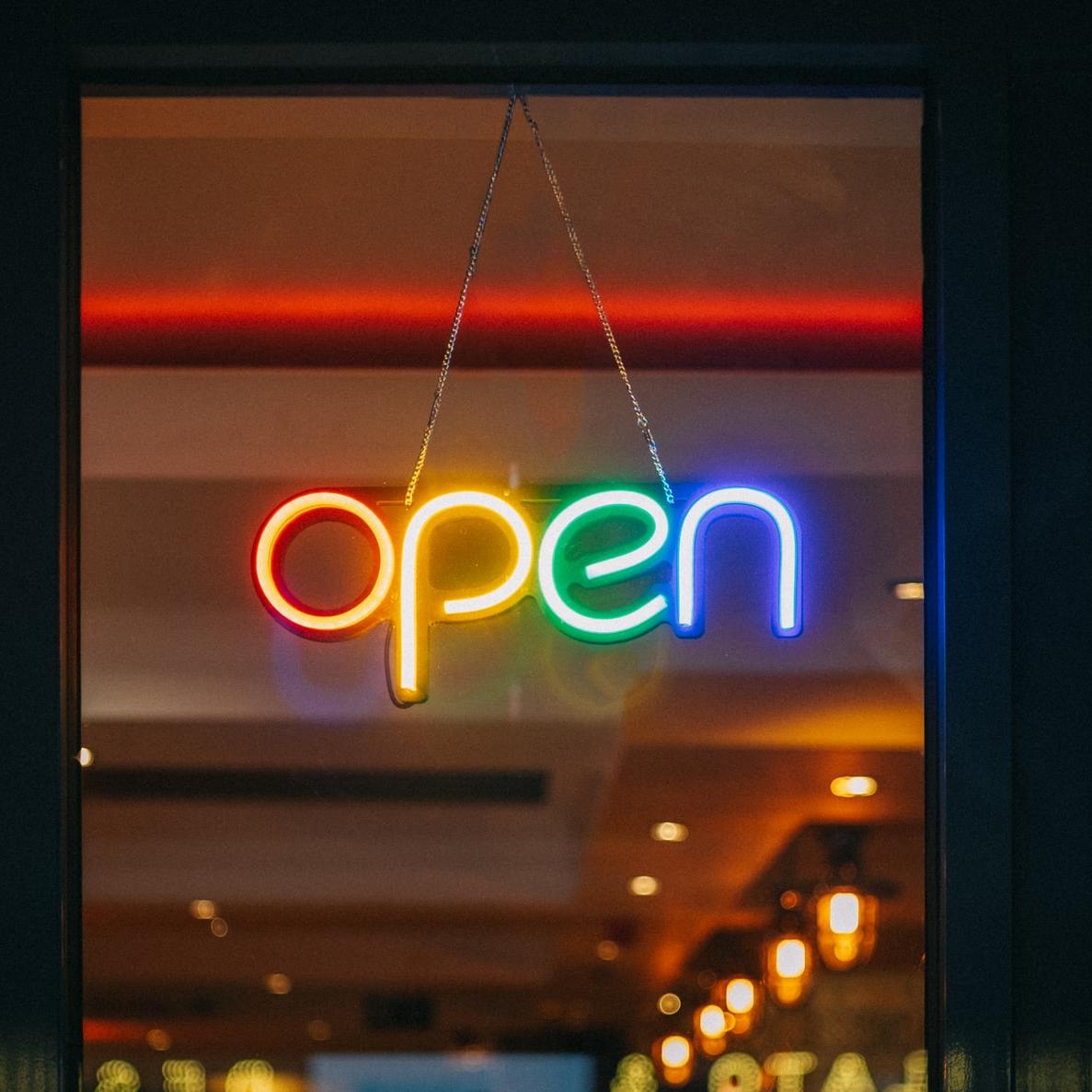Building a Circular Business from the Top Down and the Ground Up


Here’s a question for sustainability specialists: How do you transform a centuries-old multinational corporation into a circular business? Siegwerk, a top global manufacturer of inks and coatings, has a unique answer that extends beyond its products and engages employees around the world.
The 200-year-old German company has manufacturing centers in 13 countries across Europe, Asia and the Americas, as well as more than 60 production sites globally, that ensure inks are tailored to meet customer requirements in specific regions of the world. The company boasts almost 5,000 employees and about 1.2 billion euros in annual revenue.
That’s a lot of moving parts to redirect in an earth-friendly direction. So, a year ago with the help of Alina Marm, Siegwerk’s head of global sustainability and circular economy, the company developed the HorizonNow sustainable business agenda to support the implementation of the company’s renewed and ambitious sustainability targets.
Through the agenda, Marm’s team quantified the company’s goals, built a sustainability office and established what they call the green change agent teams (Green-CATs) — a decentralized, grassroots system that helps move the company’s sustainability agenda forward.
The agenda allowed Siegwerk to create measurable targets, including circular sales targets, ambitious climate goals for 2025 (including Scope 1 and 2 carbon neutrality), and a way to engage regional facilities in the drive to achieve the tall order of circularity — a concept that involves reusing and recycling products and materials instead of wasting and polluting.
Growing into sustainability through the circular economy
The Board of Directors agreed to starting with a step-wise approach, first adopting a circular economy business model to generate positive impact revenue and then expanding the strategy to include additional sustainability topics such as carbon and diversity, equity and inclusion. Embracing the concept of the circular economy was Siegwerk’s perfect gateway into sustainability, Marm told us. “Sustainability can be this really big beast,” she told us. “If you come to a board and say, ‘Hey, let’s do sustainability strategy,’ I don’t know how open the doors are.” The promise of a circular economy, though, includes a business opportunity in green growth, which is an easier angle to discuss and quantify with higher-ups — “and once you have your foot in, it’s really difficult to take it back out again,” she said.
Siegwerk’s CEO Nicolas Wiedmann echoed the need to think about business when pursuing sustainability in a recent press statement: “To deliver, Siegwerk must build a sustainable business that remains economically viable. This was always going to be challenging, but myself and the Executive Board strongly believe that [HorizonNow] is the right strategic direction to take, and that we will be successful in achieving this aggressive objective.”
Engaging a company in circularity, from top to bottom
Now, what if someone were to argue that a company can achieve circularity simply through top-down decision making? Siegwerk itself has certainly gained ground through centralized action. The company has developed custom inks and coatings for customers that increase the recyclability or compostability of packaging and reduce the use of non-renewable raw materials, such as plastics. And most of its industrial plants will soon operate on renewable energy through a global program that’s part of HorizonNow.
But Marm saw a specific need to engage employees in leading the path forward. “Circular or sustainable products don’t happen by themselves,” she said. If that was the case, our grocery stores would look very different — not filled with packaging that lands inevitably in the landfill or leaks to nature. Marm said the Green-CATs have enabled the company to create an environment that nurtures forward-looking ideas for specific regional contexts, which have varying governmental policies and infrastructure.
The Green-CATs also allow Siegwerk headquarters to better engage with employee ideas. As part of the program, the company’s Sustainability Council, headed by Siegwerk’s CEO Nicolas Wiedmann, officially endorses a selection of projects proposed by employees from around the world. There’s no guarantee of implementation or money, Marm said, but the seal of approval can give a project credibility in the eyes of local site management — conveying a message that the project has reasonable costs and good ideas — in a sense, she asks employees, “What’s holding you back?”
Putri Rizka Lestari, a senior technology development executive for Siegwerk in Indonesia, has a pitch in the top 10 for this round and is waiting on the final results. Having earned her doctorate in chemical engineering, she said she’s programmed to think about opportunities for innovation. Her project improves the cost-competitiveness of using existing infrastructure to increase the biorenewable content in Siegwerk products — which she says can help build customer interest in more sustainable offerings.
Contextualizing sustainability through a system of ‘change agents’
A significant part of what makes the transition work is that the Green-CATs are staffed by employees who become leaders of sustainability in their regions and have been elected with dedicated time to work on the topic of sustainability. Green-CATs are trained by internal circular economy experts and tasked with educating fellow employees about Siegwerk’s sustainable offerings and inspiring action in regional offices. In just a year of work, facilities have taken divergent approaches in response. Some regions have come up with creative ways to engage employees in sustainability, while others have gotten right down to product research and adaptation.
A task force in China, for example, developed a quiz show with prizes to incentivize employees to learn about how the company is approaching the circular economy. In India, labs replaced disposable droppers with stainless steel spoons. France’s Annemasse team led a project that recycles surgical masks into work shirts for employees — a move that cost little money but diverted a great deal of medical waste. “[A mask is] often considered not recyclable or, ‘We just have to burn or bury it, because it’s toxic.’ And here’s a company that we bring on site that actually creates a resource loop for these products,” Marm explained.
Educating a region in a new idea: Sustainability
Lestari is a Green-CAT ambassador focused on Indonesia, where she sets up regular webinars to educate her team members, as well as customers, suppliers and government leaders, about sustainability and circularity. Her aim is to create buy-in so these actors will bring ideas to her, which she can then help bring to life.
“It’s more efficient, right?” You don’t have to rally individuals around an idea they’ve come up with themselves,” she said. “I’m not going to lie, I still see many people who [are] skeptical of the idea of sustainability. They think … sustainability is just a campaign.”
Still, others have reached out to ask her how the sustainability office can support their ideas or help them respond to customer inquiries about more sustainable products, including bio-based offerings. When colleagues struggle to figure out where to start, she encourages them not to try to reinvent the wheel. “We don’t have to be really innovative in doing sustainability,” she offers, saying it’s often helpful to observe what others are doing and tweak their approach to suit sites in Indonesia.
How do you create a network of employees working toward a circular economy?
From her perspective in Germany, Marm said she’s been impressed with how the Green-CATs have developed sustainability networks in their regions. But those networks didn’t happen by mere chance. Siegwerk has a dedicated employee who manages the network, and about half of her time is spent working with Green-CATs around the world.
For any company looking to try out Siegwerk’s approach, Marm offered a lesson: find the right balance between freedom and guidance. “Freedom is great, but sometimes people just want very, very clear guidance on what they're supposed to do,” she explained. It took Siegwerk some effort to learn the right amount of instruction to give Green-CATs. They currently have a minimum-to-do checklist. “If they want to do more, that’s perfect,” Marm said. “They certainly have the freedom to do so.”
This article series is sponsored by Siegwerk Druckfarben and produced by the TriplePundit editorial team.
Image credit: peopleimages.com/Adobe Stock
How Companies, and Employees, Can Break Class Bias in The Workplace


A majority of employees experience some form of workplace bias, and the results can include negative impacts on their productivity, happiness and wellbeing. Though business leaders say they are prioritizing diversity, equity and inclusion (DEI) initiatives, it is clear that corporate leadership is often falling short in creating an inclusive work environment.
Part of the reason is that many DEI and accessibility initiatives are missing an important component: class bias, says Christopher Gross, founder of the DEI consulting firm Ascension Worldwide and author of What’s Your Zipcode Story?. In his book, Gross analyzes class bias as a workplace challenge, especially for “class migrants,” as they often confront hurdles to their career advancement. To that end, Gross calls for a rethink of how companies approach their workplace diversity and inclusion strategies.
Who are ‘class migrants?’
In his book, Gross defines class migrants as individuals from the working class who seek social mobility to a higher socioeconomic class. He writes that such mobility doesn't only include educational and occupational change of status, but also cultural and social learning. And just as many individuals feel the effects of their occupation, residence and income, they face the consequences of limited exposure to other socioeconomic classes.
"Hard skills are one thing,” Gross writes in his book. “Soft skills, or business-culture etiquette, for most class migrants are particularly challenging. Soft-skill challenges are so because not only are the rules unspoken, but mind-sets, styles, and mannerisms have been primarily shaped by the rules.” The reality for many class migrants and blue-collar employees is that they are more likely to be viewed as less capable than other candidates with more prestigious credentials. This false perception can hinder career advancement.
Although it is based on false pretenses, class bias is deeply rooted in society and people’s ways of thinking, Gross told TriplePundit. It touches people of all races, genders and sexual orientations — so much so that it can have an impact on day-to-day decisions. As a result, corporate leaders must practice consistency and empathy to create a more inclusive work environment as they break down their own unconscious biases, he said. As diversity training in its current form isn’t reducing or altering bias enough in the workplace, leaders will have to rely on other tools.
Tools to improve diversity, equity, inclusion and accessibility initiatives
"This is what I hear consistently from leaders who are at a C-suite level of an organization: They'll say, ‘We have people who are diverse at the lower levels of the company or middle management, but we can't find anyone who can be elevated to the C-suite,’” Gross said. “The first thing I say is, ‘Tell me about your succession plan, your process, how do you bring people to that next level?’ And they usually don't have a good system.”
In particular, Gross advocates for mentorship as a means of improving diversity, equity, inclusion and accessibility initiatives. He explained to 3p that mentorship offers mentees an opportunity to understand everyone's role, access resources and additional information. Such opportunities — paired with training and the freedom to fail and grow— can result in greater equity within the workplace.
From Gross’ perspective, mentorship is crucial for many employees’ career development. In fact, studies show employees with mentors are five times more likely to be promoted. For companies that are not offering mentorship opportunities, they can adopt other strategies so that they can include social class within their diversity, equity, inclusion and accessibility initiatives to support class migrants.
Conversations about DEI should include the tricky subject of class, too
To this point, in his book Gross recommends business leaders to have “candid, cross-racial conversations.” Conversations about multiculturalism and race are already sensitive topics for many individuals. When one’s class is added to the mix, Gross urges business leaders to improve their communication skills and lean on their own social and emotional intelligence. Further, Gross suggests that companies undertake regularly scheduled assessments, examine their recruiting processes, measure diversity and inclusion initiatives, and integrate inclusion into their performance evaluations — all of which can improve how companies assess their employees’ engagement and satisfaction.
Career advancement is a responsibility that managers should shoulder, though class migrants can do their part, too. In conversations about class, Gross encourages mentorship programs to help employees gain different cultural perspectives, which can help with their character development. More specifically, in his book, Gross recommends personal development strategies such as finding ways to generate new professional relationships, obtaining higher formal and informal education, introducing employees to new cultural activities, and offering empathy for everyone within a company’s workforce.
Understanding and breaking class bias is integral for advancing inclusive and equitable initiatives in the workplace and career advancement. And, as time has proven, high levels of diversity and inclusion increased innovation and performance.
Image credit: Christina Morillo via Pexels
Who Is Corporate America’s Next Josh Hawley? One Drugstore Chain is a Top Contender


Dunking on freshman U.S. Senator Josh Hawley (R-MO) has become something of a national sport, after video emerged of him fleeing from a bloodthirsty mob in the Capitol Building on January 6, 2021, mere hours after egging on those same people to attack that same building:
However, some of America’s leading corporate citizens have put themselves in a similar spot. Unwittingly or not, their tolerance for anti-abortion “moral” objections has played into the same vigilante-oriented white supremacist sentiment that built and armed the failed insurrection.
White supremacists and anti-abortionists have much in common
The similarity of purpose between the white supremacist movement and the anti-abortion movement has not been part of the public conversation. However, The Nation drew attention to the overlap between white male supremacists and anti-abortion activism in February of 2020, almost a full year before the insurrection of January 6.
“The anti-abortion movement in the United States has long been complicit with white supremacy. In recent decades, the movement mainstream has been careful to protect its public image by distancing itself from overt white nationalists in its ranks,” wrote terrorism expert Alex DiBranco, founder of the Institute for Research on Male Supremacism, in an article for The Nation.
In May of this year, National Public Radio reporter Odette Youseff elaborated on DiBranco’s work.
“I spoke with Alex DiBranco, who runs something called the Institute for Research on Male Supremacism. And she says we have to stop thinking about extremism in the anti-abortion context simply as violence. Instead, she says, we should be looking at the ideologies and movements that inspire that violence because they've pulled America's abortion debate to the extreme right. And you can hear that in the language used today,” Youseff explained in an interview with NPR host Adrian Florido.
Earlier this year, Moira Donegan of the Guardian also noted the connection between anti-feminism grievances and white supremacy. “The militias and explicitly white supremacist groups of the organized far right” have become a more visible and “growing cohort within the anti-choice movement,” Donegan wrote.
“But the affinity goes both ways,” she added citing the notorious anti-choice group Operation Rescue’s use of posters created by the KKK in the 1990’s.
“Just as the alt-right loves the anti-choice movement, the anti-choice movement loves the alt-right,” she wrote.
Permission granted for extremist violence
In this context, Texas’s vigilante-oriented abortion law carries all the freight of white violence in the U.S., a history that stretches back to the nation’s founding.
The connection to white vigilante violence and anti-abortion community policing now seems all too obvious today. It was also obvious, at least to some, more than 20 years ago.
The sight of anti-abortion street activists harassing women seeking care at clinics is a common one, but it is just one expression of the anti-abortion culture of violence. In 1996, for example, the U.S. Department of Justice took note of growing violence in the anti-abortion movement.
In 1998, the civil rights organization Southern Poverty Law Center (SPLC) also described how Operation Rescue and other violent anti-abortion groups drove more moderate thinkers out of the movement, leaving a hard core of extremists.
“It is, perhaps, the history of the future,” wrote SPLC reporter Frederick Clarkson. “In much the way that the neo-Nazi novel The Turner Diaries served as a blueprint for white supremacist revolution, a fictional account of the future of insurrectionary anti-abortion violence has already been written.” (emphasis added)
Clarkson cited the example of the futuristic anti-abortion novel Rescue Platoon, published on an anti-abortion website in serial form.
“Replete with bombs and murder, the mini-novel tells of a ‘righteous wrath to come,” Clarkson wrote. “In the end, the ‘Army of God,’ amid a bloodbath of epic proportions, gains the final victory.”
It is no coincidence that former President Trump pandered to white evangelicals, white supremacists and anti-abortion activists alike. Elevating himself to cult status, he conferred a sense of legitimacy, privilege and religious righteousness upon all three movements, with all the authority of the highest elected office in the nation. Trump gave permission, both tacit and outright, for the bloodbath that erupted around and inside the U.S. Capitol more than 20 years after Clarkson’s reference to insurrectionary ant-abortion violence.
Pandering to the anti-abortion movement
Trump alone bears responsibility for the failed insurrection and attempted coup of 2021. However, a willingness to pander to the anti-abortion movement has been threading through corporate America for a generation, empowering culture that permits micro-aggressions to occur in the course of otherwise routine commercial transactions.
Walgreens brought the issue into the media spotlight earlier this month, after a clerk refused to complete a transaction for a box of condoms and the customer described the experience to her Tik-Tok followers.
“When did Walgreens’ associates become the contraceptive police?” was among the many headlines circulating across the media.
However, Walgreens is far from alone. The right to refuse otherwise legal transactions based on moral or religious objections grabbed the media spotlight back in 2005, when reports emerged that some pharmacists were completing sales of prescription birth control pills but refusing to sell Plan B, the emergency contraceptive.
As of last December, six states had laws on the books providing legal protection for pharmacies that refuse sales based on religious objections.
“In six red states, pharmacists can legally refuse to fill somebody’s prescription based on a moral or religious objection: Arizona, Arkansas, Georgia, Idaho, Mississippi and South Dakota. This includes emergency contraceptives, such as Plan B,” reporter Jesse Rifkin wrote for the organization GovTrack Insider.
“Other states including Florida and Tennessee have more general medical refusal protections, but those six states specifically single out pharmacists for such legal protection,” Rifkin added.
Pharmacy refusal is far more common than state laws permit. The National Women’s Law Center, for example, has documented pharmacy refusal in at least 26 states by 2016, including several particularly egregious incidents involving emergency contraceptives at Rite-Aid and CVS, as well as Walgreens.
Separating church, state and business
As promised on the campaign trail, former president Trump appointed three conservative Justices sympathetic to the anti-abortion movement, cementing a 6-3 conservative supermajority on the U.S. Supreme Court.
That the Supreme Court struck down abortion protections in its decision on Dobbs vs. Jackson Women’s Health Organization last month was no surprise, though some did find it shocking that Justice Clarence Thomas took the opportunity to indicate that the right to contraception is also on the chopping block.
It is also shocking, but not surprising in this context, to learn that Justice Thomas’s wife, the conservative activist Ginni Thomas, has been credibly accused of aiding and abetting President Trump in his effort to remain in power after losing the 2020 election by any means necessary.
Pharmacies that permit individual employees to render their personal judgements on customers are just one expression of a corporate culture that has conferred outsized power and influence on the anti-abortion movement.
The end result is that pleas for religious tolerance have morphed into a violent movement that feels empowered to attack every other manifestation of tolerance including abortion rights, trans rights and gay marriage, embraces book bans and terrorizes children at library events, fosters panic over race awareness in education, and seeks to take power by violence.
Business leaders who want no part of this will have to choose up sides. Either they embrace intolerance, or they stand up against it. There is no mushy middle of “deeply held beliefs” anymore.
Image credit: Screen shot of January 6th Select Committee video footage
Three Ways We Can Fix Social Media for the Better


Social media is a tool of modern technology that nearly half of the world’s population uses daily. It not only has the power to solidify existing communities but can also facilitate the rapid creation and dissemination of information at the click of a button. With this power comes a great — but sometimes critical — responsibility. At the core of the problem lies: Who owns this responsibility?
This 21st-century challenge has metastasized into a global crisis: social media-led online toxicity. The toxicity in question is affecting everyone in our society, turning social media into a vessel for hate speech and misinformation that’s rapidly circulated. Today, this rampant threat is straying from the boundaries of the internet and wreaking havoc in everyday “in real life” (IRL) communities. The world experienced first-hand how damaging misinformation was during the COVID-19 pandemic when health misinformation became a public threat overnight due to its growing presence on social media platforms. Social media has also caused real violence as seen with the recent shootings like Highland Park, Illinois where online posts revealed that the suspected gunman left a long trail of tributes to mass shootings and public killings in advance of the Fourth of July attack. This modern-day crisis requires a modern solution focused on information harm reduction.
Current social media platforms capitalize on misinformation because content that evokes intense sentiment draws higher engagement, in turn, generating more revenue. As misinformation moves fast and is a growing threat to society, it is up to policymakers and political actors to challenge the traditional social media business model and build a new future for social media.
So, what are the necessary steps to curb this harmful content and execute a program of information harm reduction? We suggest three to start.
Build a sustainable internet with a clean social media approach
We can curb harmful content by first encouraging a behavioral change in social media – a clean social media. Similar to how clean energy aims to curb negative environmental impacts such as pollution, clean social media is an intentional cross-sector strategy to reduce the hate speech and harm users frequently experience online. The clean social media approach begins with removing the toxic algorithms of traditional social media platforms, which amplify content that drives hatred and polarization to increase engagement and “clicks.” Online platforms need to embed the concept of “people over profit” within their business models before the first user signs up for an account to make a lasting impact.
Pixstory is an example of one such platform. Founded with integrity at its core, Pixstory’s business model is shaped to hold its users accountable for their content and to prioritize people over profit, all while being home to healthy dialogue. Similarly, programmers like Darius Kazemi are creating online spaces with a more democratic approach to content moderation that prioritizes its users.
There was once a time when the term “energy” was synonymous with fossil fuels until clean energy from renewable sources emerged in response to the climate crisis. Today, the combination of transparency from online platforms and integrity is the key to a more sustainable online environment. We’re in crisis mode and clean social media is the long-overdue solution.
Integrate information harm reduction into ESG strategy
Corporate action around ESG has been a crucial driver of progressive innovation and social impact. As new social challenges create new imperatives for businesses around the globe, developing solutions to the social media crisis must be a consideration for companies engaged in ESG. When it comes to the “S” in ESG, social media-driven hate, misinformation, and polarization is the biggest threat to society, which is why businesses have a responsibility to support efforts to mitigate them. By partnering with new platforms that are designed with information harm reduction in mind, corporations can help transform their business model to build a sustainable internet, one that doesn’t profit from hate speech and misinformation. And, it’s possible.
Create a competitive ecosystem
Free market competition in America has often been the catalyst for the greatest inventions and accomplishments in history. In the world of athletics, competition drives athletes to strive for greatness and aim for the best possible outcome. Now more than ever, social media needs an ecosystem that fosters competitiveness towards building a new business model that puts people over profits and promotes safety online. Additionally, regulation should expand its scope of intellectual property rights laws to protect new tech entrants into the arena of social media from their ideas being co-opted by big tech giants.
In today's digital age, the ball is in the court of corporations and online platforms to team up to transform the current business model into one that utilizes a clean social media approach, designed with information harm reduction capabilities. The future of our society depends on it.
Interested in having your voice heard on 3p? Contact us at [email protected] and pitch your idea for a guest article to us.
Image credit: Patrick Tomasso via Unsplash
This Popular Hotel Chain’s Menus Are Going Plant-Based


A dining area at Selina's Chapinero location in Bogotá, Colombia
If you haven’t yet stayed at a Selina property, that global wanderer within you has been suffering some serious FOMO. Think of a boutique hotel, plus a hostel, plus a bougie co-working space, and you’ve got Selina. Founded less than a decade ago, most of the company’s properties are in Latin America, but this chain popular with millennial and Gen Z digital nomads is also opening more locations across the U.S., Europe, Israel and Australia.
The chain known for its continuous accommodation programs, onsite yoga classes for guests, programs to promote local artists and interiors full of endless pops of color is now taking another step to redefine what hospitality means: All menu items at Selina will now have plant-based alternatives.
Why would a hotel chain go plant-based?
Let’s take a quick look at the various ways in which we can all reduce our carbon footprint. Consumer goods companies want you to believe that opting for the cold-water cycle on your washing machines or using a dishwasher over handwashing dishes will save the planet. Elon Musk and his fans will tell you electric vehicles are the way to drive a low-carbon future. And Greta Thunberg and her allies will tell you air travel has got to stop if we’re going to curb emissions.
There’s a degree of truth in all of the above assertions. But those same detergent manufacturers often stumble when it comes to explaining why we should buy products that are 90 percent water and come in plastic that isn’t recyclable. Dish care makers tout their detergent pods without thinking about equity — if one’s home isn’t equipped with a dishwasher or a family can’t afford one, this common trope of putting the onus on consumers to save the planet won’t move the sustainability needle at all. The equity argument carries over to electric cars: Many middle-class folks can’t afford the upfront costs of such a vehicle, not to mention the fact that the batteries powering EVs carry their own human rights and environmental problems. Yes, air travel generates impact, but let’s not get carried away in pointing fingers at the occasional traveler: Private air travel, such as the 17-minute flights taken by the likes of Kylie Jenner, is an indulgence that is far more polluting.
Editor's note: Be sure to subscribe to our Brands Taking Stands newsletter, which comes out every Wednesday.
But if people would reduce their meat consumption, the benefits for the planet would scale far more rapidly. Further, changing one’s eating habits is a relatively simple act; going meatless doesn’t entail creating another problem, whether it’s plastic from buying an alternative cleaning product or waste from trading in a gas-powered vehicle.
Research on how reducing meat consumption can heal the planet are all over the map. One study from 2019, for example, suggests that if Americans alone would reduce their meat intake by a quarter, annual global greenhouse gas emissions would drop by 1 percent. Additional research concludes that if animal agriculture were phased out over the next 15 years, that would nix almost 70 percent of the world’s carbon emissions through the end of this century. Another study suggests the global meat supply chain ranks equally with worldwide transport when it comes to the generation of emissions.
Selina rolls out a plant-based menu
Selina is starting this plant-based rollout with a soft launch. The company already boasts a fully plant-based restaurant at a London location, and a Tel Aviv property will introduce plant-based options at its restaurant later this month.

Redefine Meat, which makes plant-based alternatives to menu items such as a flank cut, sausages and even a kebab mix, is Selina’s partner on this initiative. Sustainability is part of what explains this shift: Redefine Meat’s claims that its products require 96 percent less water and 98 percent less land while emitting 91 percent fewer greenhouse gases contribute to what makes for a seamless decision by Selina.
But appealing to millennials and Gen Z, who currently comprise the bulk of digital nomads, is also driving Selina’s strategy. Though sustainability is an important part of these consumers’ decision to go increasingly plant-based, so too are factors such as animal welfare as well as concern over one’s health and wellness.
Should Selina follow through on this plan, it’s much bolder than what most hotel chains offer on the sustainability front — whether they are asking guests to hang their towels if they don’t want them washed, or nebulous promises to go net-zero by mid-century.
Image credit: Selina
Leading with Governance Is Crucial When It Comes to ESG


Because corporate governance is well established by most companies that report financial statements, many firms may overlook how governance applies to the way they address the environmental and social issues that matter to their stakeholders. With so much uncertainty about what regulators will require next, it’s no wonder survey results show that many environmental, social and governance (ESG) practitioners are underprepared to meet the evolving landscape.
Governance, otherwise known as the “G” in ESG, is attracting a renewed focus now that the U.S. Securities and Exchange Commission has proposed a number of disclosures around how boards and executives manage climate risk. Regardless of how far along a company is in terms of ESG reporting, without a strong governance framework, many efforts to achieve ESG goals may fall apart. The reason is ESG is not just an exercise in reporting metrics but rather an integration of critical, material factors into all aspects of business strategy, decision-making, investments, mergers and acquisitions, and so forth.
Whether your company has set ESG goals or not, governance is about connecting the dots. It relies on cross-functional collaboration to assign authority to make decisions related to goals, strategy and operations. It is both qualitative and quantitative, in that it outlines the way those decisions are made, backed by data, and how the organization is held accountable for those decisions with board and management oversight. This is why the governance of ESG requires a new set of management skills, as well as data governance and controls for success.
Governance of ESG starts at the top with accountability across teams
As stakeholders demand more information about a company’s ESG profile, keep in mind that adage: We can’t manage what we don’t measure. No matter what ESG goals your company sets, reporting on your performance with the same rigor with which you report financial results will give boards and executives better information to drive decisions.
Some ESG goals, however, can stretch beyond the typical one-year snapshot of an annual 10-K or the three-year forecasts of even the most mature organizations. ESG is unique in that non-financial data involve a different set of standards, frameworks, risk assessments, time horizons and strategic planning — all while requiring new skills by both management teams and the board.
While some boards are tying executive compensation to goals around improving safety, diversifying the workforce or reducing carbon emissions, the practical reality is that reaching these goals can also help to improve revenue and profits. Integrating ESG into an overall corporate strategy allows companies to authentically say, “Yes, we’re pursuing profits, though not at the expense of people, the environment or our greater purpose.”
Boards holding executives accountable for ESG performance will find different industries may consider different topics and risks to be material. That is part of why consistency and comparability of the data can be a challenge, though governance is key to ensure alignment in how ESG standards and frameworks are applied and that they will be used as intended. When integrating ESG into corporate strategy and to be more accountable to your stakeholders, this focus on governance will create a return on your investment in building the long-term sustainability of your business.
Operationalizing ESG and ensuring data governance with technology
At Workiva, our roots grew from the need to digitize disclosures, so we understand the need to build ESG data collection and reporting processes with auditability and data governance in mind. This is also what investors and regulators expect. The term “investor-grade” is synonymous with applying financial rigor and controls, which ultimately are guided by governance.
Similar to financial reporting, ESG teams are setting interim targets and sharing progress with the aim to not only measure and manage, but also to mitigate and monitor for ESG risks and opportunities. This can be scaled only with technology. Instead of asking employees to manually enter and update data from around the company, automate data collection with an end-to-end platform that can provide confidence for auditors to trace ESG data to the source.
Disparate teams can eliminate the need to reconcile multiple versions of documents by using cloud tools that enable real-time collaboration on a single draft, reducing the risk of a missed update. Rather than calculating Scope 1, 2 and 3 greenhouse gas emissions for different business units in silos, syncing latent data sources such as enterprise resource planning systems (or ERPs) can help eliminate the risk of human error.
Because many companies may already use technology like the Workiva platform for SEC reporting, Sarbanes-Oxley compliance or internal controls, it makes sense from a data governance standpoint to not have to reinvent the wheel when it comes to ESG. Providing timely, reliable reports with proper controls is essential to driving ESG decisions and related performance. Use technology to automate what you can so your teams can save time, be more agile to changing demands and deliver results.
Tell your ESG story authentically and with accuracy
What stakeholders value has evolved over the years, and now more than ever, being able to show measurable progress on ESG is increasingly vital to business — especially in being transparent about progress and backing it up with data.
The incentive to have strong governance in place is twofold: ensuring greater transparency and trust in monitoring ESG progress, while enabling confidence in the accuracy of that data for decision-useful business insights.
Having real-time access to dashboards and peer benchmarking insights, similar to financial goals, can help ensure what you share with the board is accurate and accountable. This is increasingly important as the SEC, European Commission and regulators around the world adopt new requirements for ESG disclosures.
ESG reports should celebrate successes, and leaders should be accountable in showing progress, regardless of the goals, as ESG is now a data-driven practice. Beyond data collection, oversight and controls, the most valuable part of ESG governance is the feedback loop it creates. Similar to corporate strategy, ESG is a continuous improvement practice, not solely a compliance exercise. After all, that’s what ESG initiatives should be all about.
This article series is sponsored by Workiva and produced by the TriplePundit editorial team.
Image credit: Jacob Lund/Adobe Stock
The Paycheck Protection Program May Have Saved U.S. Jobs, But Was PPP Cost-Effective?


Of the $800 billion allocated to small businesses through the Paycheck Protection Program (PPP), a mere 25 percent trickled down to workers, according to a recent report from the St. Louis Federal Reserve Bank. The majority of funds instead went to benefit suppliers, creditors and business owners. While the Fed notes that the PPP may have helped keep small businesses from shuttering, its effectiveness at preserving wages was not only limited, but also came at a high price. This outcome was likely unavoidable, however, due to both the parameters of the program and a lack of supportive structural systems.
The PPP was a temporary program implemented as a part of the Coronavirus Aid, Relief and Economic Security (CARES) Act, the initial federal response to the COVID-19 pandemic. The program aimed to prevent small business closures and accompanying job losses through forgivable, uncollateralized loans — funneling up to $10 million each to firms with under 500 workers. The funds were not earmarked solely for wages and benefits and instead were available to cover other costs related to maintaining employment levels, such as utilities and rent or mortgage payments. The only requirement borrowers faced to having the loans fully forgiven was to attest that funds had been used appropriately within the time allowed, so it’s no surprise that the bulk — 90 percent — were forgiven as of June 20 this year.
But were any jobs actually saved? According to the report, yes. Just under 3 million jobs were saved each week in the second quarter of 2020, with that number dropping to 1.75 million by the fourth quarter. Although, with an annual cost of $169,000 to $258,000 per preserved position, those saved jobs came with a hefty price tag — especially considering that the estimated average compensation package for those jobs was only $58,200. Instead of using the majority of funds on payroll and employee benefits, 75 cents out of every dollar went to suppliers, creditors, owners and shareholders. As a result, 72 percent of the $800 billion allotted through the program ended up in the hands of those whose income was already in the top 20 percent.
The Fed’s researchers compared these results to the two other major pandemic programs — unemployment and stimulus checks — and found that neither allocated monies in such a regressive manner. But while the Fed maintained that the PPP was not the most efficient use of funds, it also argued that the program was necessary to prevent a tsunami of small business closures that would have had a resounding and disastrous effect on the U.S. economy as a whole. The researchers also pointed to the lack of infrastructure for work-sharing and wage subsidies as partially to blame for the failed targeting behind PPP, and they suggested expanding and implementing structural programs in anticipation of future sudden economic downturns.
Perhaps the biggest problem with PPP, however, was the scope of businesses it catered to under the label “small.” While the name may conjure visions of the local mechanic, mom-and-pop shop or neighborhood restaurant, in reality many larger businesses that would have otherwise weathered the pandemic just fine on their own were also able to use the program to subsidize their bottom lines.
This begs the question: Why did Congress include businesses that employed more than 500 employees, no matter how they were structured? Surely firms of such size should be expected to plan ahead and survive temporary downturns largely on their own. And yet none of this comes as a surprise considering the government’s proclivity to subsidize big business in the first place.
By allowing loans in the millions while setting such lax requirements for repayment forgiveness, the PPP encouraged businesses that didn’t necessarily need the cash to take it as a windfall anyway. Higher standards for loan forgiveness could have prevented some of this. As the program was written, business owners knew they wouldn’t have to repay the money regardless of how much trickled down to employees and therefore had little reason not to take out the loans and spend the money as they saw fit to improve their profit margins.
Image credit: Viktor Forgacs via Unsplash
Grants Ensure Social and Economic Inclusion for Afghan Refugees Resettling in the U.S.


More than 76,000 Afghan refugees have entered the U.S. since the American military left their country in August 2021. Long-term and sustainable support is essential to their successful resettlement. To that end, the WES Mariam Assefa Fund is providing assistance for refugees beyond basic necessities by awarding $200,000 in grants targeted to building communities that are both welcoming and inclusive for Afghans.
One notable challenge for all refugees is the short-term nature of assistance, as most agencies provide resettlement services for only 90 days, said Lauren Crain, associate director of the fund’s U.S. strategy and programs. The fund rewards programs that exceed temporary support efforts by building communities and workplaces through the engagement of businesses, nonprofits and other funding organizations. Examples include help with navigating government resources, access to transportation, opportunities to learn English and other skills, job placement assistance, and childcare.
“It’s important that the system shifts from humanitarian response to building inclusive communities,” Crain told us. “This includes employers, but also local government, schools, religious organizations and more, and where models like community sponsorship play an important role.”
The recent $200,000 grant awards went to the following organizations: Community Services Agency (COMSA) in Green Bay, Wisconsin; Immigrant Advocates Response Collaborative (I-ARC) in upstate New York; Ohlone College in Fremont, California; and TIS Foundation in Washington, D.C. Since its launch in 2019, the fund has partnered with more than 90 organizations across the U.S. and Canada, distributing over $14.7 million in support of refugees and immigrants.
Wanted: Businesses committed to employing Afghan refugees
Businesses have the opportunity to strengthen resettlement efforts by making an effort to employ newly arrived refugees. Several of the Mariam Assefa Fund’s grantee partners, including I-ARC and Upwardly Global, are offering support to employers looking to hire refugees, as well as other opportunities to engage such as resume reviews or mock interviews, Crain added. Another partner, Welcome.us, connects employers with refugees who are looking for jobs.
Throughout U.S. history, immigrants have been essential in building the economy. With low unemployment rates and many industries struggling to find qualified workers, successful resettlement and employment for immigrants is increasingly important to sustain a healthy economy. For Afghan refugees, the U.S. has an added responsibility to help them thrive in their new communities following the 2021 rapid troop withdrawal after a 20-year war in Afghanistan.
“Fully activating their economic potential will benefit individual immigrants and refugees as well as our economy and communities,” Crain added. “Immigrants and refugees come to our country to live with dignity and respect and build futures for their families and they deserve access to quality education and jobs that value their identities and lived experience.”
Workforce training leading to careers in high-demand fields
The Ohlone College grant is an example of funds earmarked for job training. The college is based in the Bay Area city of Fremont, home to one of the largest Afghan refugee populations in the U.S., Crain noted. Through the grant, refugees from both Afghanistan and Ukraine enroll in an eight-week training program, joining a smart tech cohort at the college. The education program, which includes industry certification and paid apprenticeships, leads to jobs starting at $20 per hour with career pathways for advancement at companies such as Tesla.
Meanwhile, COMSA is working to assist Afghans in the Green Bay area, where approximately 1,200 refugees are resettling. The nonprofit is providing wraparound services such as transportation and English-language training for school-age children, mental-health counseling and culturally responsive childcare.
During last summer’s withdrawal of U.S. troops, among the enduring images are the thousands of Afghan refugees fleeing their homes and leaving behind jobs, family and friends. Almost a year after the U.S. left Afghanistan, the Mariam Assefa Fund’s grants not only help ensure these people’s social and economic inclusion, but that the funds will keep the refugees’ plight and long-term needs in the forefront within their new communities.
Image credit: Nasim Dadfar via Unsplash
How China’s Solar Domination Challenges the World


This article was co-written with Kelley E. Currie.
To appreciate how China’s techno-authoritarianism threatens the world, consider solar energy. What’s seen as a clean, modern and relatively high-tech alternative to fossil fuels has become another example of the Chinese Communist Party’s strong-arm approach to bullying other countries and dominating an industry. Worse yet, many American investors are willfully blind to China’s monopolistic tactics and use of modern-day slave labor, prizing their “green” portfolios over U.S. energy security and human rights.
Here’s the good news: Economies of scale have enabled cost reductions that many experts predict will lead to solar energy comprising 60 percent of the world’s energy needs by 2050. This will help reduce greenhouse gas emissions and go a long way to address climate change.
But here’s the bad news: The inconvenient truth of the inconvenient truth is that the manufacturing of solar cells is an energy- and labor-intensive process. That’s why 80 percent of the world’s solar panels are made in the coal-rich Xinjiang region of China, which is not only home to the world’s two biggest coal-fired power plants but also ground zero of the CCP’s genocide of the Uyghurs, who are used as slave labor. As we have witnessed recently at the gas pump, energy security is national security. Wars are started and lost because of energy. Unless drastic action is taken, we will find ourselves at China’s mercy for our energy needs, just as Germany is at Russia’s.
Confronting a solar power bully
Already, China has nearly cornered the market for polysilicon, the base of the global solar supply chain. Over the past decade, China’s share of the global production of polysilicon increased from 26 percent to 82 percent, while the U.S. share plummeted from 35 percent to 5 percent. This did not happen by accident. China dumped state subsidies into solar production, engaged in arbitrage and undercut rivals with lax worker and environmental protections. Many American investors were complicit or worse in ceding the market to China. BlackRock and other institutional investors championed cheap solar energy as part of their highly lucrative “ESG” — environmental, social and corporate governance — portfolios, prioritizing easy-to-measure environmental considerations above equally important, but harder to quantify, human rights concerns.
Beijing has a history of trying to bully its way to the top of an industry. Fortunately, the recent history of advanced wireless technologies demonstrates that China has a fatal weakness: Other countries don’t trust it.
In January 2020, the world was convinced it was too late to prevent the CCP from dominating the fifth generation of global wireless telecommunications. China’s attempt to monopolize 5G communications had real national security implications for the rest of the world — threatening to put an authoritarian regime in charge of the world’s most advanced communications infrastructure.
But Beijing’s march to dominance — which was based on raw power rather than values — was reversed. Trust was the key. In less than a year, during the worst period of the COVID-19 pandemic, the Clean Network Alliance of Democracies brought together 60 “clean countries,” representing two-thirds of the world's GDP, 200 “Clean Telcos,” and dozens of industry-leading “clean companies” committed to only using trusted 5G vendors. This trust-based alliance defeated the CCP’s grand monopolistic scheme and created an enduring, replicable model for all areas of techno-economic competition.
A model for diplomatic and economic cooperation
The same trust-based model that helped thwart China’s wireless hegemony can loosen its grip on global solar production.
Just as like-minded countries came together on a Clean Network to exclude malign actors from advanced wireless networks, so we can incorporate trust principles into our ESG standards. For example, we should exclude Chinese-domiciled firms from ESG-designated funds, require the Securities and Exchange Commission to define a company’s domicile in China as a “material risk,” and rationalize sanctions lists to ensure that companies that are implicated in human rights abuses lose access to U.S. capital markets.
The world’s democracies, led by the United States, have the moral legitimacy and economic power to stop a bully in its tracks. And now, we have a model to do it. Alliances built around shared values – fundamental to what we call “tech diplomacy” – are vital to both our economic self-interest and to the moral leadership we must summon toward a freer and fairer world.
About the co-author: Kelley E. Currie served as U.S. Ambassador-at-Large for Global Women’s Issues and the U.S. representative at the United Nations Commission on the Status of Women. Prior to her appointment, she led the Department of State’s Office of Global Criminal Justice and served as the U.S. Representative to the U.N. Economic and Social Council and Alternative Representative to the UN General Assembly.
Interested in having your voice heard on 3p? Contact us at [email protected] and pitch your idea for a guest article to us.
Image credit: Pixabay
Five Steps Companies Can Take to Optimize Their ESG Reporting


In the aftermath of last fall’s COP26 climate summit the environmental, social and governance (ESG) movement appeared to have many reasons to be optimistic, with some observers declaring that businesses are now inseparable from ESG. Money held in sustainable mutual funds and ESG-focused exchange-traded funds rose globally by 53 percent from 2020 to 2021 to $2.7 trillion, with a net $596 billion flowing into the strategy, according to Morningstar.
While that sounds like sugar there is some salt in the mixture, according to a recent report from the global professional services firm EY.
The report acknowledges the optimism about ESG in the run-up to last year’s COP26 climate summit. “Recognizing public concerns over climate change, numerous companies and governments committed to ambitious net-zero pledges,” the report’s authors say. “In tandem, investors identified the huge potential associated with funding the transition to a low-carbon economy.”
However, EY asserts that changing perceptions have left the movement facing some “existential questions” about what ESG really means and whether ESG-focused investors are being effectively served by the sustainability information ecosystem.
The problems with ESG reporting
EY is hardly alone in expressing these concerns. The Economist argues that ESG has three “fundamental problems,” including a “dizzying array of objectives” lacking any coherent guide for investors and firms to make the “trade-offs that are inevitable in any society,” a lack of clarity about incentives, and a measurement problem because the various scoring systems have “gaping inconsistencies” that can be gamed easily.
Since last fall, the ESG movement has also had to contend the evolving priorities of policymakers and investors in a global economic and geopolitical climate roiled by inflation, Russia’s invasion of Ukraine, and growing tensions between the U.S. and China. There also are growing allegations of greenwashing, such as when a business improves their ESG score by selling assets to a different owner who keeps running them just as before.
The EY report acknowledges these complexities but nevertheless characterizes the maturation of the sustainability information ecosystem as “nothing short of extraordinary,” and that the challenges facing the ESG investing movement “are a product of its infancy.”
The availability and quality of “asset-specific climate data” has improved considerably in recent years,” according to Trevor Houser, a partner with the Rhodium Group. Improvement in the resolution of global climate models, combined with “rapid growth in climate-focused econometric research,” is increasing the understanding of how changes in the climate impact company revenue and operations, real estate investment performance, municipal and sovereign bond risk, etc. In addition, as Houser said within EY's report, more companies are also measuring and disclosing greenhouse gas (GHG) emissions data.
Should climate have more focus within ESG?
While ESG scores measure a company’s performance on a wide range of environmental, social and governance issues, such as labor relations, waste management, or business activities in countries with authoritarian governments, Houser said they provide “relatively little useful information about company-specific climate risk.”
Climate change-related considerations are usually less than 15 percent of an overall ESG score, said Houser, and other sources of data, including individual assessments of various ESG topics such as climate, are more likely to provide “more meaningful insight.”
Houser said most ratings agencies focus on climate risk management, but many investors are mostly interested in impact, such as how a company’s operations are affecting the climate.
“While these two objectives — risk and impact — are related, they are not the same,” said Houser. “Data providers [and] rating agencies need to be transparent about assumptions and methods and develop products to meet both risk and impact use cases.”
Five ways to optimize ESG reporting
EY offers five recommendations the sustainability information ecosystem should act upon, starting with increasing the transparency of composite indicators like ESG ratings, “which do not serve investors interested in social impact as they are weighted on financial materiality.”
Next, the report calls for increasing understanding of the variety of ways sustainability information is used. The two primary uses of sustainability information are to assess financial risk and social impact, which “are not mutually exclusive but are easily confused.”
The third recommendation is to put in place the conditions to enable the rise of independent assurance — coupled with enhanced standards and increased automation and reporting rigor — to help “further build trust in sustainability information and among ecosystem actors.”
Fourth, the report calls for the development of “comparable and interoperable sustainable finance taxonomies,” systems designed for determining which economic activities should be considered sustainable. Taxonomies founded “on complementary principles” would help to increase comparability and transparency across markets while recognizing that “markets have different philosophies, legal architectures and economic structures.”
Lastly, the report asserts that it is crucial to lower barriers for market participants in emerging economies to put them in a better position to benefit from private capital seeking sustainable investments.
Meanwhile, the broader sustainability information ecosystem will continue to debate the roles played by the respective actors within the ecosystem, says EY.
“The recommendations in this report are not a panacea for addressing the difficult questions facing the ecosystem,” the report concludes, “but they are important areas of focus in the move toward information that is decision-useful and trusted.”
Image credit: Louis Maniquet via Unsplash